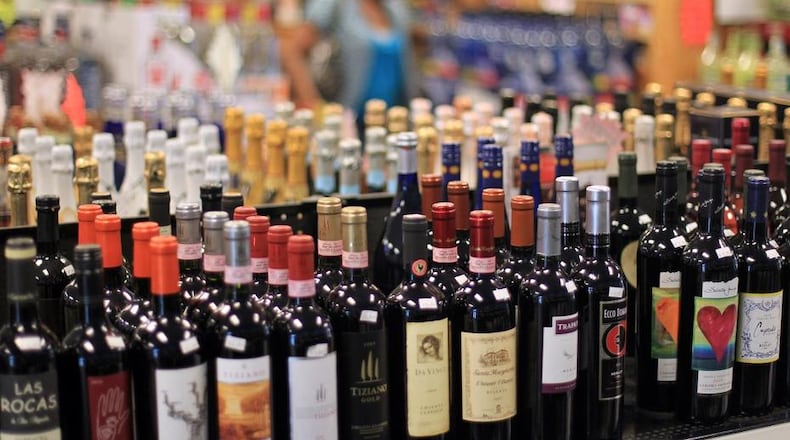With the experience of the coronavirus pandemic shutdown fresh in their memory, the Georgia Senate on Tuesday gave overwhelming support to the idea of letting grocery stores, restaurants and liquor stores deliver beer, wine and booze to the front doors of their customers.
Food delivery mushroomed during the shutdown, and in some areas of metro Atlanta, restaurants delivered beer, wine and mixed drinks with food orders.
"The virus came in and did a lot of things," said Sen. Ed Harbison, D-Columbus, who pushed failed alcohol delivery bills in the past. "Time brings about a change."
The idea has been pushed in recent years by House Ways and Means Chairman Brett Harrell, R-Snellville, who called it part of the changing way Georgians shop. More and more Georgians have their purchases delivered to their homes, and the pandemic expanded the market as many have sought to avoid grocery stories, restaurants and other businesses in hopes of steering clear of COVID-19.
Kathy Kuzava, a longtime lobbyist for the grocery store industry, said some of the retailers she represents saw an increase in delivery sales of more than 100% during April.
“This is becoming more important to our retailers,” she told a Senate committee last week. In passing the bill, she told lawmakers: “You are making a lot of customers and retailers happy in this state. Your constituents will be very happy.”
Harrell's legislation, House Bill 879, passed his chamber before the General Assembly suspended the 2020 session in March because of the pandemic. When it returned earlier this month, he made passing the measure a priority.
Karen Bremer, the CEO of the Georgia Restaurant Association, asked lawmakers to make sure her businesses would be allowed to continue delivering.
“Fifteen weeks ago I represented an industry that was the second-largest private employer in the state,” she said. “We were on track to do $25 billion in revenue this year and employed 500,000 people.”
Bremer put losses since the March onset of the pandemic at $4.8 billion statewide, and she said 300,000 employees have been laid off.
Under the delivery bill, beer or wine couldn’t just be left on the front porch like Amazon deliveries. The delivery person would have to check IDs to make sure the buyer is old enough to purchase alcohol.
The measure would allow local municipalities to opt out of allowing alcoholic beverage delivery. The liquor store lobby asked out of the bill, so Georgians wouldn’t be able to get a delivery from a liquor store.
Not everyone likes the bill.
While some liquor store owners told senators they wanted to be included in the delivery business, Stony McGill, a lobbyist for the Georgia Alcohol Dealers Association, said the 500 small stores he represents would be at a disadvantage because they are not set up with websites and a delivery system.
Harrell's bill excluded liquor stores from being able to deliver liquor to customers, but Senate President Pro Tem Butch Miller, R-Gainesville, added them to the measure Monday, saying local retailers need help.
“It is consistent with the changes we are seeing in retail,” Miller said. “The internet and online purchases are destroying hometown businesses, brick-and-mortar businesses. COVID-19 put the final nail in a bunch of local retailers. Local retailers support the community.”
Religious groups have also traditionally opposed these kinds of bills.
“As usual, we have concerns about the expansion of the sale of alcohol,” said Michael Griffin, a lobbyist for the Georgia Baptist Mission Board. “Accessibility equals sales, sales equal consumption. The more you consume there is the potential there for problems.”
Final passage in the House this week would prove another major shift in the way the General Assembly has viewed the sale of alcoholic beverages.
"Twenty-five years ago just any bill was called a liquor bill and you'd have trouble passing it," said Senate Minority Leader Steve Henson, D-Stone Mountain. "We've changed a lot over the years."
For decades, Georgia had restrictive alcohol sales laws, and it took about five years of sessions for the grocery and convenience store lobbies to persuade the General Assembly to allow Sunday retail sales of beer, wine and liquor. The measure only passed in 2011 after Gov. Sonny Perdue, a religious conservative who opposed it, left office.
At the time, Georgia was one of only three states with a complete ban on Sunday alcohol sales at stores.
About the Author
Keep Reading
The Latest
Featured




